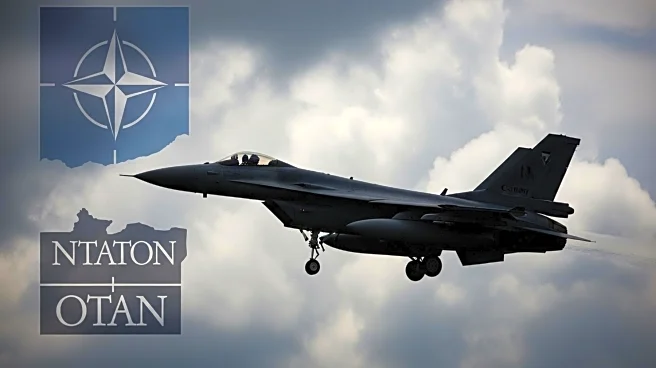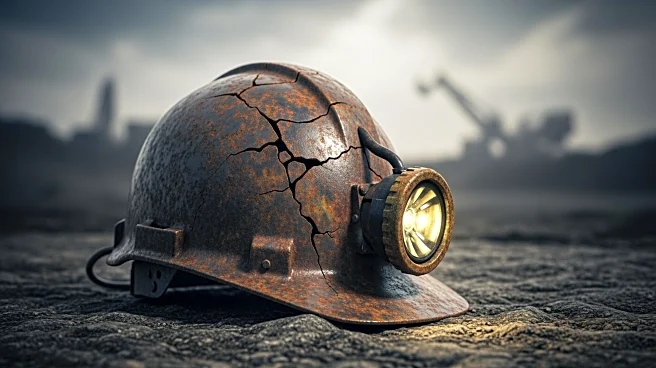What's Happening?
Three Russian fighter jets entered Estonian airspace without permission, prompting Estonia to summon a Russian diplomat and protest the incursion. The incident occurred over Vaindloo Island in the Gulf of Finland and lasted for 12 minutes. Estonia's Foreign Minister Margus Tsahkna described the event as a 'brazen' violation, marking the fourth such incident this year. Italian Air Force F-35 fighter jets, part of NATO's Baltic Air Policing Mission, responded to the incursion. NATO's North Atlantic Council is set to convene next week to discuss the situation further, as Estonia seeks consultations under NATO's Article 4. The incursion has heightened tensions in the region, with European governments increasingly concerned about the potential spillover of the Ukraine conflict.
Why It's Important?
The incursion by Russian jets into Estonian airspace underscores the growing tensions between NATO and Russia, particularly in the context of the ongoing conflict in Ukraine. Estonia, along with other Baltic states and Poland, has been a strong supporter of Ukraine, and such violations threaten regional security and stability. The incident highlights NATO's readiness to respond to threats and the importance of maintaining vigilance in the face of Russian provocations. The situation could lead to increased political and economic pressure on Russia, as NATO allies seek to deter further aggression. The event also raises concerns about the potential for escalation, which could have significant implications for European security and NATO's strategic posture.
What's Next?
NATO's North Atlantic Council will meet next week to discuss the incident in detail, potentially leading to increased diplomatic and military measures to address the security threat. Estonia's call for Article 4 consultations may result in coordinated actions among NATO allies to reinforce their defense capabilities in the region. The incident could also prompt further diplomatic engagements with Russia to prevent future violations and reduce tensions. European governments may consider additional sanctions or other measures to pressure Russia into compliance with international norms. The situation will likely remain a focal point in discussions about NATO's role in ensuring regional security and its response to Russian actions.
Beyond the Headlines
The incursion raises broader questions about Russia's strategic intentions and its willingness to test NATO's resolve. It highlights the ongoing challenges in managing relations with Russia and the need for a unified and robust response from NATO allies. The incident may also influence public opinion in Europe regarding defense spending and military readiness, as countries assess their security needs in light of Russian provocations. Additionally, the event could impact diplomatic efforts to resolve the Ukraine conflict, as it underscores the complexities of negotiating peace with a nation that continues to engage in aggressive actions.








